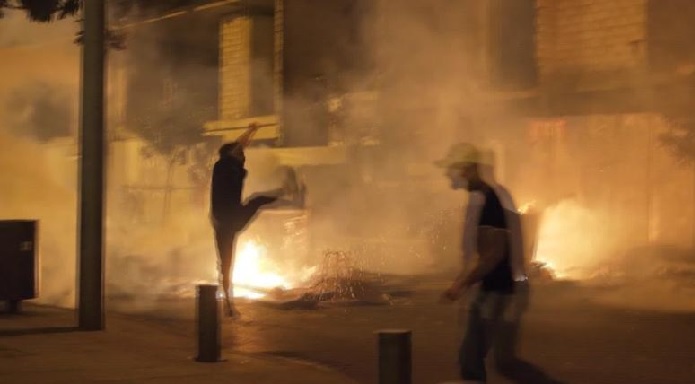
Anti-government protesters took to the streets in multiple Lebanese urban centers on Thursday, setting up burning barricades and forcing road closures as the country’s currency fell rapidly.
Demonstrators hurled stones at military forces and some protesters attempted to scale a security fence outside the prime minister’s office in the capital city Beirut. Protesters chanted against the country’s political elite, which many hold responsible for the country’s economic woes.
Lebanon’s main coastal highway was closed by burning tires in the north and south of the capital, as protests were staged in areas that rarely see demonstrations, such as Hezbollah strongholds in the capital’s southern suburbs.
In the northern city of Tripoli, protesters pelted the army with rocks and threw Molotov cocktails at the city’s Central Bank office. Protests also erupted in the southern cities of Saida and Nabatieh.
In recent days, Lebanon’s currency has taken a nosedive, losing around 70% of its value since October. The currency’s collapse has stirred panic in a country that relies heavily on imports for its basic needs.
Food prices have soared amid mass layoffs and business closures in recent months. The World Bank has projected that Lebanon’s poverty rate will stand at nearly 50% in 2020.
Lebanon’s current government, led by Prime Minister Hassan Diab, has been in power for just over 100 days. Protesters accuse it of having done little to alleviate economic problems.
Last October, hundreds of thousands of Lebanese took part in nationwide anti-corruption protests that toppled the government of former Prime Minister Saad Hariri. Since then, demonstrations have regularly cropped up around the country over plummeting living conditions and corruption that protesters believe is widespread.
Diab, a technocrat who was formerly a professor at the American University of Beirut, was named prime minister by a Hezbollah-backed coalition in December. His cabinet promised far-reaching reforms when they were sworn in January, but critics say they have largely failed to deliver.
 Eurasia Press & News
Eurasia Press & News



